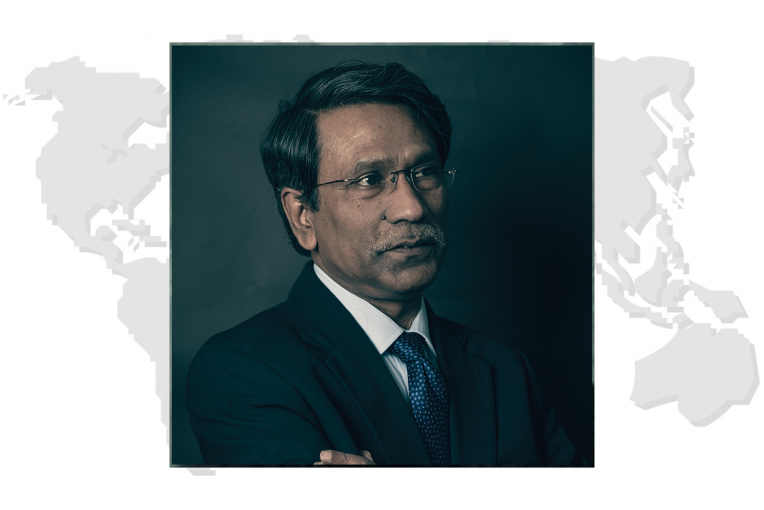Distinguished Professor Ali Riaz has been quoted by several international media outlets about U.S.-Bangladesh relations and its implications for South Asia. In a report published in Nikkei Asia, Riaz discussed the recent visit of Deputy Assistant Secretary Donald Lou to reset U.S.-Bangladesh relations. In past years, the relationship soured due to U.S. insistence on holding a free and fair election.
The January 7, 2024, Bangladesh election was boycotted by the opposition parties and was described by the U.S. as “not free and fair.”
“It appears that the U.S. has accepted the ground reality, albeit grudgingly, and hit the reset button in the relationship,” Riaz said. He added that Washington was prioritizing business and geopolitical interests while still aiming to maintain some influence over the Bangladeshi government. “Apparently, these considerations are prompting the U.S. to work on low hanging fruit and avoid stress in the relationship in the near future, but such engagement on ‘soft’ issues without addressing democracy and human rights issues will further diminish U.S. leverage in Bangladesh and the region.”
In a report of the BBC Bengali service, Riaz said that on Bangladesh issues the Biden administration took a value-based approach of foreign policy and underscored democracy, human rights, and labor rights; but the approach did not pass the test. He said that India’s support for the Sheikh Hasina’s government in Bangladesh might have influenced the U.S. position.
Riaz was also quoted in a separate report of BBC Bengali on the sanction imposed by the State Department on the former chief of the Bangladesh army for corruption. The sanction was imposed on Aziz Ahmed, who was the army chief until June 21, 2021. Ahmed and his family members won’t be able travel to the U.S., and all their assets in the U.S. will be subject to freezing. Riaz reminded that the allegations against Ahmed were raised in a documentary broadcast on February 1, 2021, in Aljazeera English. He said that despite the long delay in U.S. action, it sends a message that those who are engaged in corruption now may have to pay in the future.
In a report by the German international broadcaster Deutsche Welle (DW), Riaz commented on the Bangladesh government’s denial that any human rights violators from Bangladesh have been sent to U.N. Peacekeeping Missions. DW broadcast a documentary alleging that military personnel from Bangladesh and Sri Lanka with records of human rights violations have been sent by the respective countries.
“The denial by the Bangladesh government is not sufficient to address the issue,” Riaz said. “Instead, the U.N. should take proactive measures immediately.”

